Original Experiment: Lid-Driven Cavity
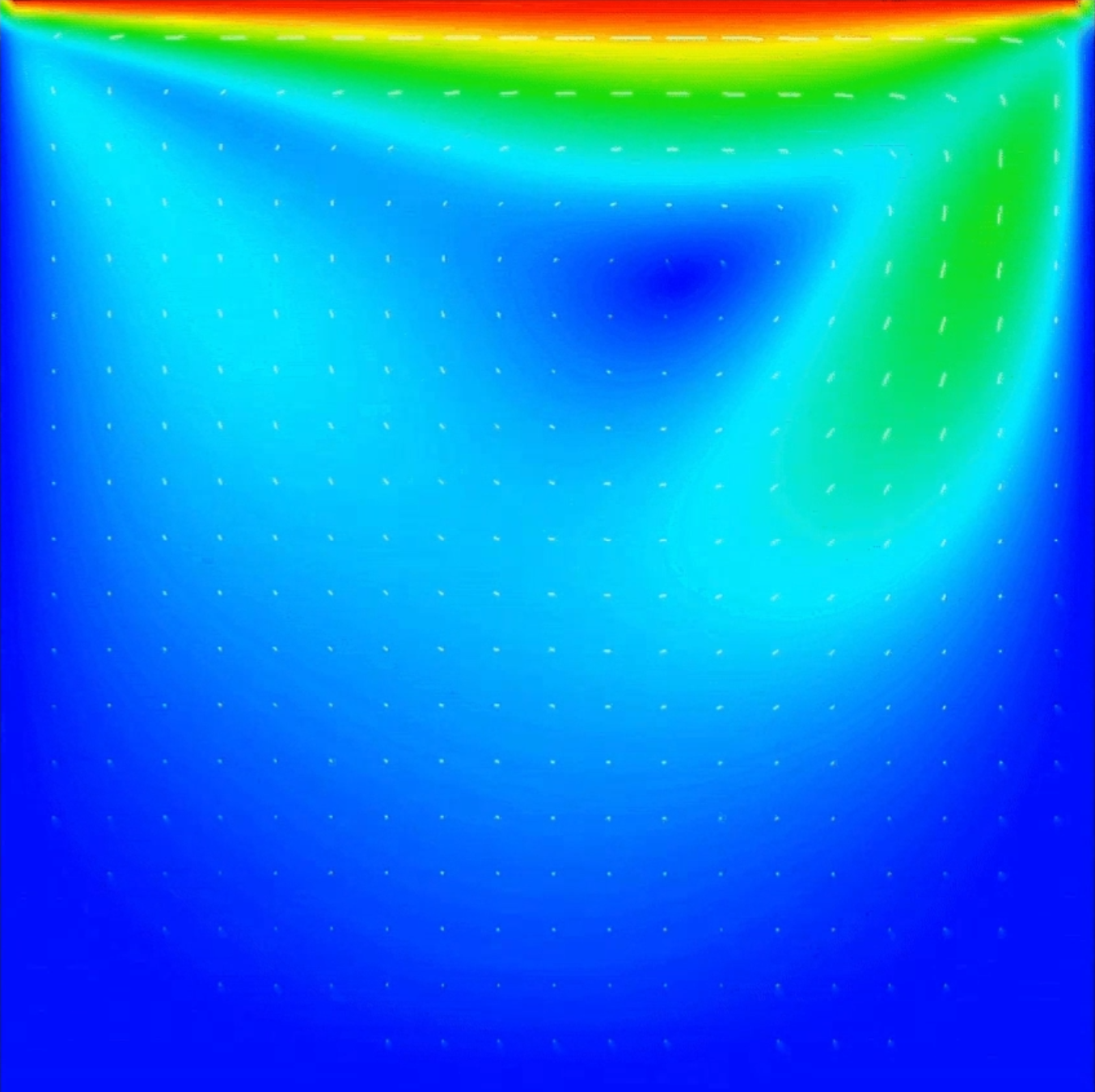
Original Experiment: Lid-Driven Cavity
This baseline experiment shows the classic lid-driven cavity setup where the top lid moves at 1.0f to the right. The lid's motion induces a dominant vortex that circulates throughout the cavity and forms the basis for the subsequent modifications.
Experiment 1: Bottom Wall Motion
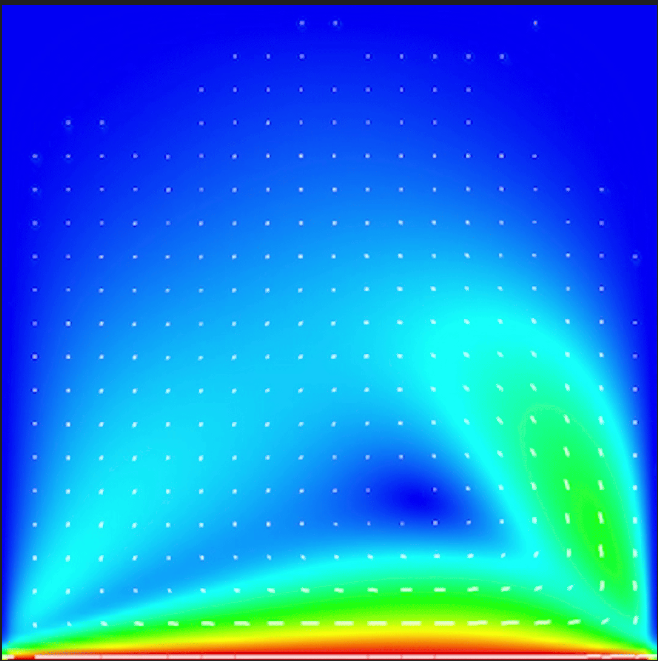
Experiment 1: Bottom Wall Motion
In this experiment, only the bottom wall moves at 1.0f to the right. This unilateral forcing produces an asymmetric flow, driving fluid primarily from the bottom and resulting in an unbalanced vortex structure.
Experiment 2: Top and Bottom Wall Motion
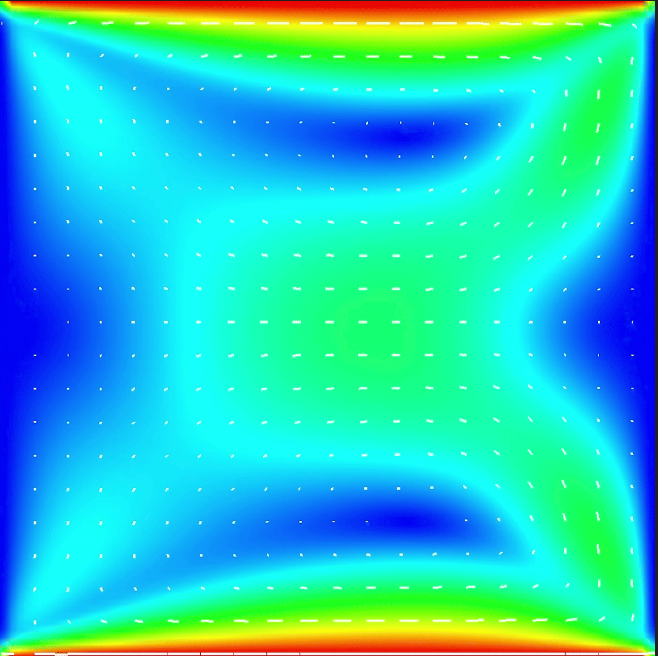
Experiment 2: Top and Bottom Wall Motion
Here, both the top and bottom walls move at 1.0f to the right. The simultaneous movement of these boundaries creates a more symmetric flow, reinforcing the central vortex and leading to a balanced circulation pattern.
Experiment 3: Opposing Wall Motions
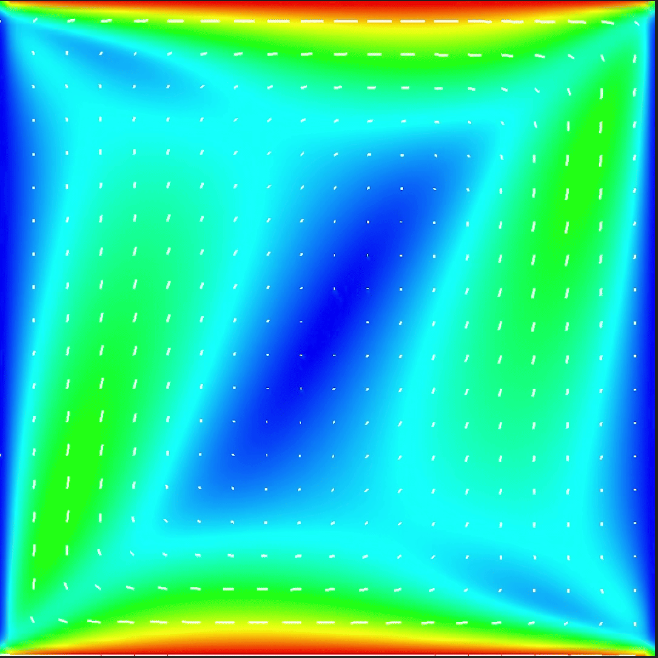
Experiment 3: Opposing Wall Motions
In this configuration, the top wall moves to the right at 1.0f while the bottom wall moves to the left at 1.0f. These opposing motions give rise to counter-rotating vortices inside the cavity, creating a more intricate internal flow.
Experiment 4: Left Wall Inflow with Opposing Wall Motions
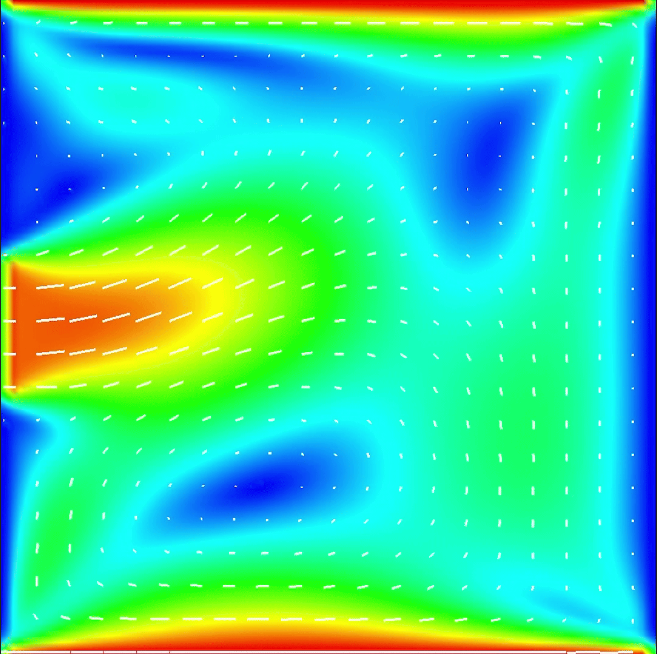
Experiment 4: Left Wall Inflow with Opposing Wall Motions
In this setup, a constant 1.0f spout is introduced at the center of the left wall. With the top wall moving right and the bottom wall moving left, the additional inflow from the left modifies the circulation, adding complexity to the overall flow pattern.
Experiment 5: Multi-Spout Forcing with Opposing Wall Motions
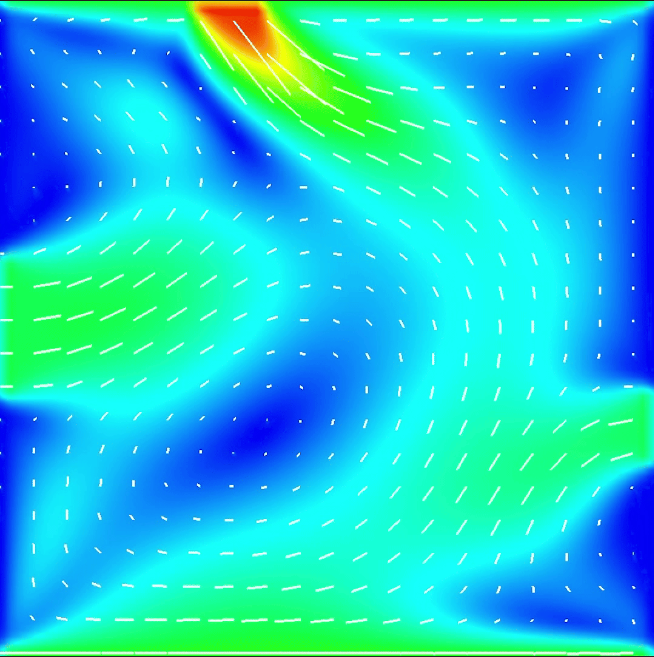
Experiment 5: Multi-Spout Forcing with Opposing Wall Motions
The final experiment applies multiple spouts simultaneously: a strong 2.0f spout from the top, along with 1.0f spouts from both the left center and bottom right. Combined with the top wall moving right and the bottom wall moving left, this arrangement produces a very dynamic and complex flow with lots of interaction between flows.